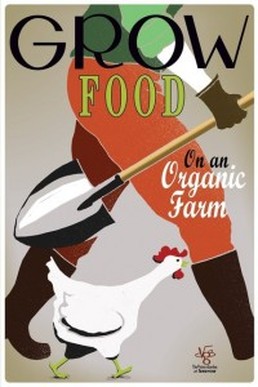
It was the Green Revolution of the 1940’s, one hundred years later, that opened the door for chemical fertilizers and pesticides to become the behemoth that is today. That door was opened even wider in 1971 when then secretary of agriculture, Earl Butz, embraced modern technology as being able to out smart nature and the slogan for farmers was, “Go Big or Get Out!"
Justus touted, “If nitrogen, potassium and phosphorous were fed to a plant in proper amounts, even in depleted soils, the plant would grow." Instead of feeding the soil, it was feed the plant. Even then, in an effort to make a buck, the environment was seen as expendable and simply a means to an end versus a partner in food production.
Around the turn of the century, Sir Albert Howard of Britain started to be recognized for his research in organics at the Institute of Plant Industry in India. He pioneered the early research which debunked the growing belief that chemical versus natural farming was superior. His claim was simple...composted soil improved plant health. Howard is often considered the father of composting. He developed the systems that we still use today. By the time he left India in 1931, he was producing tons of compost. So prolific were his techniques that they could be conducted at any scale. He had no choice. He knew he was waging a war against the approaching Green Revolution. His methods had to out perform chemical-based fertilizers. He published his findings in the 1940 book, An Agricultural Testament.
Then along came J.I. Rodale. He brought the work of Howard, and others in the organic movement, to the people. Rodale launched Organic Farming magazine in 1942 (currently known as Organic Gardening). While one war was raging over seas, another was taking place on American soil, literally. It was a race to make organic not an alternative but the norm. His publications became a target of the food and the medical industry for making false health claims against conventional. Despite published reports by the USDA in 1938 which attributed the Dust Bowl to the soil degrading practices of conventional agricultural, the government was still persuaded to allow agricultural mega-corporations to take control of the food system.
The rest is history as they say. We've seen success and failures over the years for the now "alternative," organic movement. My hope is...the trend towards ecological and socially oriented framing methods will continue to grow and the work of our fore fathers will be honored in a greener tomorrow.

 RSS Feed
RSS Feed
